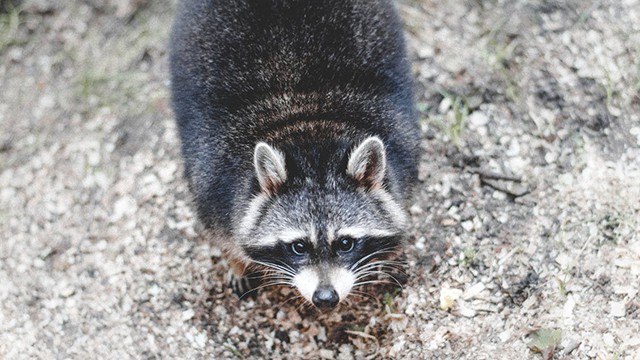New Rabies Case Confirmed in Burlington
Published October 23, 2017 at 12:40 am

Burlington residents are being reminded to protect themselves and their pets from the threat of rabies.
Burlington residents are being reminded to protect themselves and their pets from the threat of rabies.
There have been 11 confirmed cases of raccoon strain rabies – found in three skunks and eight raccoons in Burlington – since Oct. 4, 2016.
The most recent case was earlier this month when a raccoon near Aldershot was found to have rabies, according to the city.
Raccoon strain rabies were reported in three raccoons and one skunk found in the City of Burlington on July 6.
Several cases were found in the Hamilton area in 2015.
Rabies vaccine baits were being dropped in north Burlington last July by the Ministry of Natural Resources and Forestry (MNRF) to prevent the disease from spreading through fox and raccoon populations.
The MNRF is also is distributing oral rabies vaccine bait in Oakville – along with other parts of southern and eastern Ontario – in an effort to prevent the disease from spreading through the raccoon and fox populations. The program began mid-July and will continue until the end of October.
Rabies is a viral disease that causes severe damage to the brain and spinal cord.
If untreated before symptoms appear, rabies will lead to death. The virus is spread through the saliva of an infected animal, usually entering through a bite or scratch.
After someone is exposed to rabies, timely use of the rabies vaccine can prevent the rabies illness.
While the rabies vaccine is extremely effective if it is administered before any symptoms occur, there are a number of things you can do to protect your family and pets from the threat of rabies:
- Avoid all contact with raccoons, skunks and other wild animals
- Seek medical attention immediately if you come in contact with a raccoon, skunk or other potentially rabid animals
- Report all animal bites or scratches to the Halton Region health department
- Warn your children to stay away from any wild, stray or aggressive animals
- Do not touch dead or sick animals
- Do not feed or keep wild animals as pets
- Make sure your pet’s rabies vaccinations are up to date
- Keep your pet on a leash when off your property
- Ensure pets that have come in contact with a raccoon or other wild animal are seen by a veterinarian.
(Source: Halton Region)
For more information on rabies or to learn about positive raccoon rabies results in Halton, click here or phone 311.
insauga's Editorial Standards and Policies advertising





